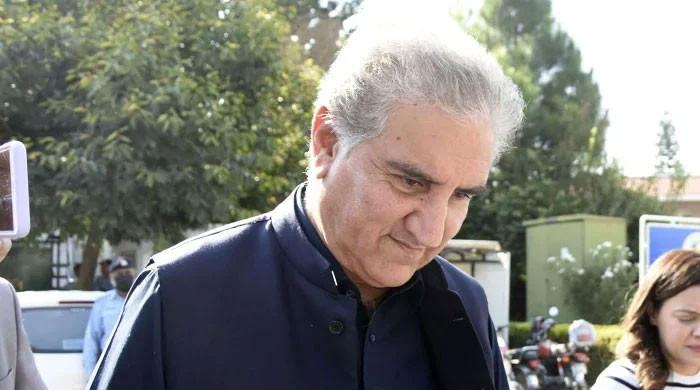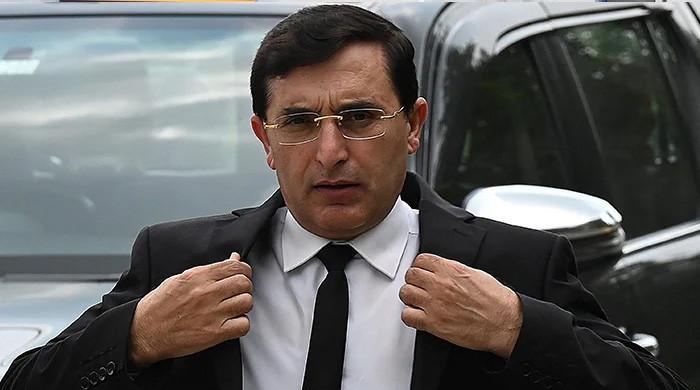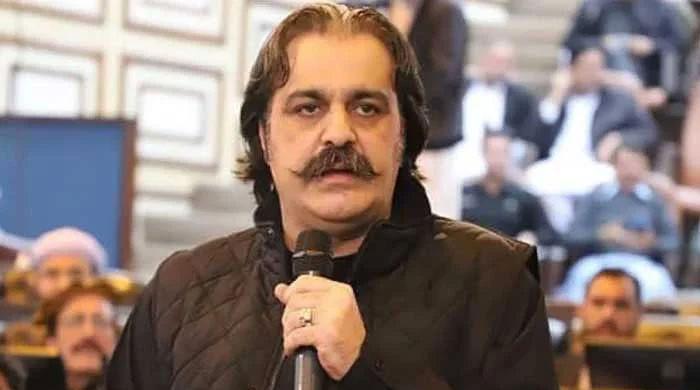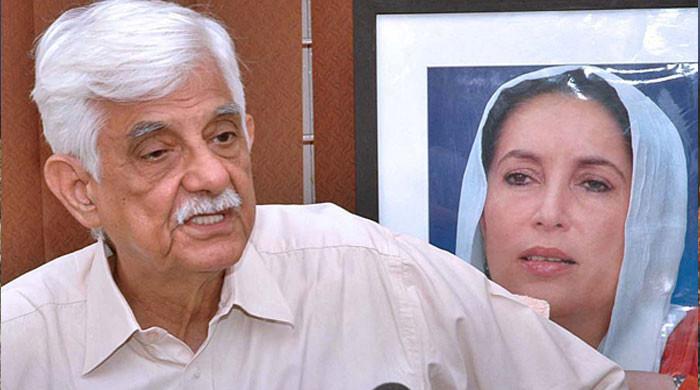SC closes case that prompted Justice Isa to suspend 'suo motu' hearings
"Top judiciary is divided and it is the responsibility of CJP to remove this perception," says law minister
April 04, 2023
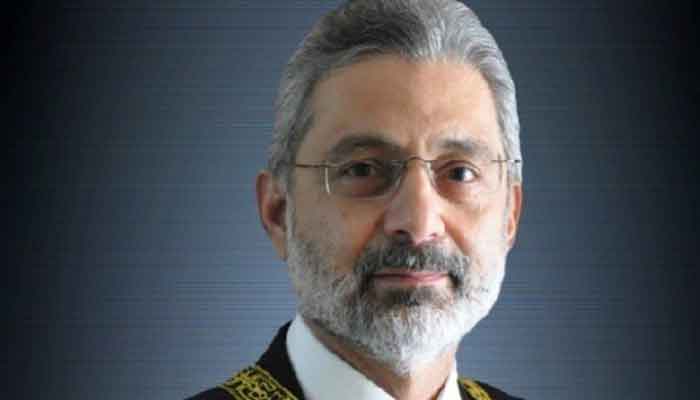
- Apex court closes case after six judges hear it for five minutes only.
- Says suo motu became infructuous after amendment in PMDC rule.
- Detailed verdict covering other aspects of case to be issued later.
ISLAMABAD: In yet another key development for the day, a six-member Supreme Court bench Tuesday 'closed' the case that led Justice Qazi Faez Isa to issue an order to freeze the hearings of all the sub judice suo motu notices — after a five-minute hearing.
Earlier, the apex court constituted a six-member larger bench to review the decision of a special SC bench, led by Justice Qazi Faez Isa, which ordered the shelving of all suo motu cases — invoked under Article 184(3) of the Constitution.
Justice Isa, while hearing a case examining the grant of additional 20 marks to Hafiz-e-Quran pre-medical candidates for admission into MBBS/BDS courses, had issued an order to halt all suo motu hearings.
The new bench was led by Justice Ijazul Ahsan, who stated that a detailed order would be issued on other facets of the matter later.
Justice Munib Akhtar, Justice Sayyed Mazahar Ali Akbar Naqvi, Justice Muhammad Ali Mazhar, Justice Ayesha A Malik, and Justice Syed Hasan Azhar Rizvi were the members of the bench.
During the hearing, Justice Akhtar said the suo motu case had become infructuous after an amendment in the Pakistan Medical and Dental Council (PMDC) regulation. The suo motu proceedings were closed after an amendment in the PMDC regulation, the bench said.
On March 30, A three-member bench of the apex court, headed by Justice Qazi Faez Isa and comprising Justice Aminuddin Khan and Justice Shahid Waheed, issued a majority order of 2-1 in a suo moto case regarding the grant of 20 marks to Hafiz-e-Quran while seeking admission in MBBS/BDS Degree under Regulation 9(9) of the MBBS and BDS (Admissions, House Job and Internship) Regulations, 2018.
The bench ordered the postponement of cases being heard under Article 184(3) of the Constitution till the amendments made in the Supreme Court Rules 1980 regarding the discretionary powers of the Chief Justice of Pakistan to form benches.
Later, a circular was issued by the SC Registrar Ishrat Ali ‘disregarding’ the order, triggering controversy about whether a judicial order can be overruled by an administrative order.
However, Justice Qazi wrote a letter to the government asking it to remove the registrar for further "damaging the reputation and integrity" of the top court. Subsequently, the federal government withdrew his services.
‘Divided Supreme Court’
Meanwhile, Law Minister Azam Nzeer Tarar has termed the development as an endorsement of their stance that a judicial order can’t be set aside through a “circular”.
“We had asked for holding proceedings under 184(3). The Supreme Court should have addressed this confusion on the suo motu issue and the same was proposed by the Attorney General for Pakistan Mansoor Usman Awan yesterday.”
The minister said that the top judiciary is divided and it is the responsibility of CJP [Umar Ata Bandia] to remove this perception.
CJP should have taken this matter to the full court meeting and settled this, he added.
Tarrar said that no one would accept this verdict with so much controversy
He advised the CJP to call a full court meeting else this would turn into a full fledge constitutional crisis.





